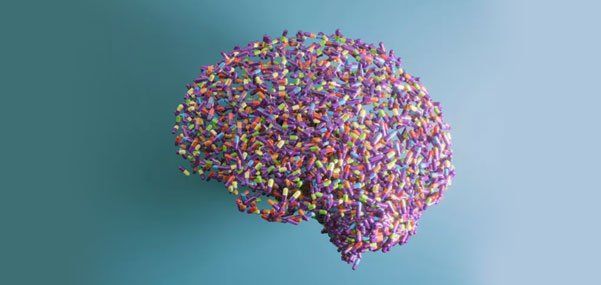Study Suggests ADHD Drugs Could Treat Alzheimer’s Symptoms
Key Takeaways
- Researchers suggested that ADHD medications may alleviate some symptoms of Alzheimer’s disease.
- The drugs specifically helped improve cognition and apathy in Alzheimer's patients.
- Repurposing drugs could speed up the approval process and reduce the costs of having to develop an entirely new medication.
Treatment options for Alzheimer’s disease are limited, but new research suggests that medications for attention deficit hyperactivity disorder (ADHD) may treat certain symptoms of Alzheimer’s.
An analysis published in the Journal of Neurology Neurosurgery & Psychiatry reviewed 19 clinical trials on the use of noradrenergic drugs—often used to treat anxiety, depression, and ADHD—in people with neurodegenerative disease.
Researchers found that these drugs can improve general cognitive performance and apathy, the most common neuropsychiatric symptom in Alzheimer’s patients.
Related: Study: Flu Shots May Reduce the Risk of Alzheimer's Disease
Michael C. B. David, the lead author of the study and a clinical research fellow at Imperial College London, said that current Alzheimer’s treatment only has “modest effects on symptoms.”
Since existing research suggested that changes in Alzheimer’s patients first occur in the brain’s noradrenergic system, which regulates alertness and arousal, David and his team wanted to look into the effectiveness of the drugs that are designed for this system.
The noradrenergic system affects the attention span in people with ADHD, David explained. “Patients with Alzheimer’s disease also struggle with attention, so we predicted this might be improved with these drugs,” he said.
Related: Dementia Cases Expected to Triple by 2050
Limited Treatment Options for Alzheimer’s Disease
Currently, treatments exist to delay or manage certain symptoms of Alzheimer’s, but there is no cure.
Cholinesterase inhibitors, including Aricept (donepezil), Exelon (rivastigmine), and Razadyne (galantamine), are approved to treat Alzheimer’s symptoms. These drugs may help stabilize or improve brain functions and delay the progression of symptoms for some patients.
Aduhelm (aducanumab) is the only FDA-approved drug that targets the underlying cause of Alzheimer’s rather than its symptoms only. But Aduhelm is controversial: Some experts have argued that the clinical data didn’t actually show the drug helped slow cognitive decline, and the medication comes with the risk of serious side effects, such as brain swelling or bleeding.
Related: Why Is the FDA Approval of a New Alzheimer's Drug So Controversial?
Megan Maroney, PharmD, a clinical associate professor at the Ernest Mario School of Pharmacy at Rutgers University, told Verywell that in the early stage of Alzheimer’s, some of the cognitive functioning is “quite similar to what we see in an individual with ADHD, including difficulty with attention and short-term memory.”
Maroney added that the noradrenergic drugs reviewed in the study are “sometimes used off-label for depression in elderly patients,” so it makes sense that they might be useful for Alzheimer’s patients as well.
The current standard of care for Alzheimer’s is to “prevent further decline in cognition, not necessarily to improve it,” according to Maroney. “If we can find a medication that safely and effectively improves functioning, that would be a big step,” she said.
Related: Study Finds Treating Depression in Dementia Patients Goes Beyond Drugs
The Potential Benefits of Repurposing ADHD Drugs for Alzheimer’s Disease
Amit Sachdev, MD, director of the division of neuromuscular medicine at Michigan State University, said that “the most important consideration is how a drug works rather than what it is approved for” as treatment options for Alzheimer’s are limited.
“Many medications are initially improved for an easily measurable and relatively well-understood disease. As the brain is better understood, existing medications are often repurposed,” Sachdev said.
If ADHD drugs were to be approved for use in Alzheimer’s patients, the process would be much faster than designing a new drug, Maroney noted.
“Studying a brand-new medication can take years and years of development and study, which also carries a significant cost burden,” she said. “If we can repurpose a medication that is already on the market, we can start using it in patients much more quickly. It would simply be a matter of studying it for safety and efficacy in this target population. We’d already have a massive head start.”
Related: Getting Too Little Sleep in Middle Age May up Your Dementia Risk
What This Means For You
A new study showed that ADHD drugs might improve cognitive abilities and apathy in Alzheimer’s patients. However, more research is needed to see if they could be added to the arsenal of drugs to treat Alzheimer’s disease.
https://www.verywellhealth.com/adhd-drugs-for-alzheimers-disease-5705808





